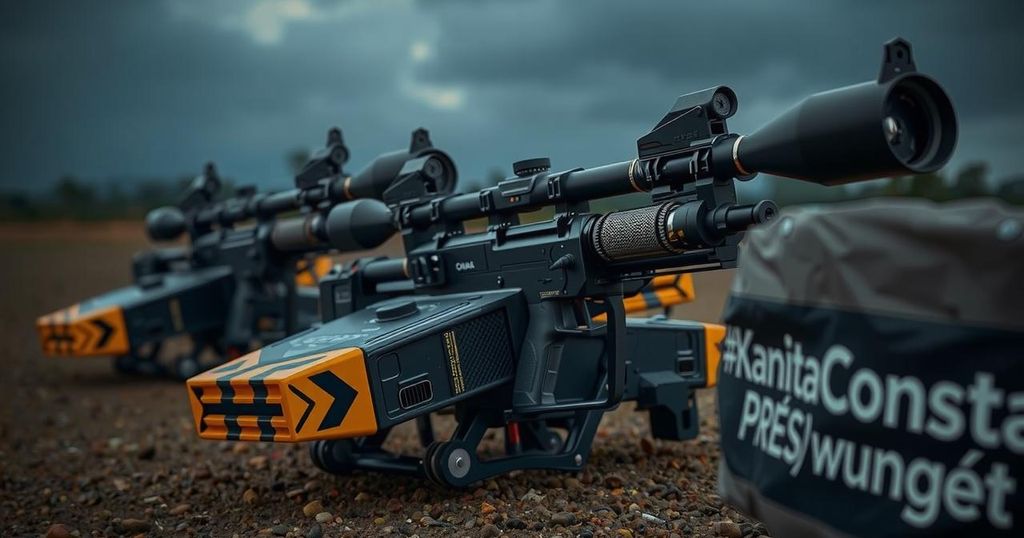Amnesty International has uncovered that the Galix defense system, a French military technology, is being employed by the RSF in Sudan amidst ongoing conflict. This usage raises serious concerns over potential violations of a longstanding arms embargo. The organization urges immediate cessation of arms supplies to warring factions and calls for an extension of the embargo to cover all of Sudan to protect civilian lives.
Amnesty International has revealed that sophisticated French military technology, specifically the Galix defense system, is currently being utilized by the Rapid Support Forces (RSF) in the ongoing conflict in Sudan. This alarming revelation comes in light of findings that the Nimr Ajban armoured personnel carriers (APCs), produced in the United Arab Emirates (UAE) and armed with the French-made Galix System, are actively deployed on the battlefield. The Galix System is designed to protect military vehicles from threats, yet its presence in Sudan raises serious concerns regarding breaches of international arms embargoes, particularly since the European Union has maintained an arms embargo against Sudan since 1994. The report highlights the serious implications of the continued flow of armaments into the conflict, calling into question the responsibility of France and the UAE in ensuring compliance with established international protocols regarding arms exports. Agnès Callamard, Secretary General of Amnesty International, emphasized the necessity for immediate cessation of arms supplies to both warring factions to mitigate further humanitarian crises. The ongoing conflict, which erupted in April 2023, has resulted in catastrophic casualties and displacement, prompting urgent calls for expanded international measures to protect civilians. In the wake of these findings, Amnesty International has called for the United Nations Security Council to extend the arms embargo to encompass all of Sudan, rather than just Darfur, and to enhance monitoring and enforcement mechanisms to ensure compliance with human rights standards throughout the arms supply chain.
The issue of arms supplies to conflict zones, particularly Sudan, underscores the complicated interplay between military partnerships and international law. The fighting that erupted in Sudan in April 2023 between the Sudanese Armed Forces (SAF) and the RSF has triggered a humanitarian crisis, resulting in over 23,000 fatalities and millions displaced. A prior EU arms embargo, instituted in 1994, aims to restrict arms trade with Sudan, yet the integration of sophisticated foreign military systems highlights the challenges in enforcing such prohibitions and the potential for complicity in human rights violations. Amnesty International’s investigation into the use of French military technology in this context illustrates the urgent need for accountability and enhanced governance over arms exports, particularly regarding the re-exportation by intermediary nations like the UAE, which have historically violated U.N. embargoes.
Amnesty International’s findings regarding the deployment of French-manufactured military systems by the RSF in Sudan raise significant ethical and legal concerns surrounding the responsibility of arms-exporting nations to adhere to international embargoes and human rights standards. The connection between the UAE’s military procurement and ongoing violations of arms protocols necessitates a reevaluation of existing practices to safeguard civilian lives in conflict zones. The organization’s call for an expanded arms embargo highlights the imperative for immediate action to curtail the flow of weapons that exacerbate human suffering in Sudan and protect the vulnerable populations affected by this devastating conflict.
Original Source: www.amnesty.org






